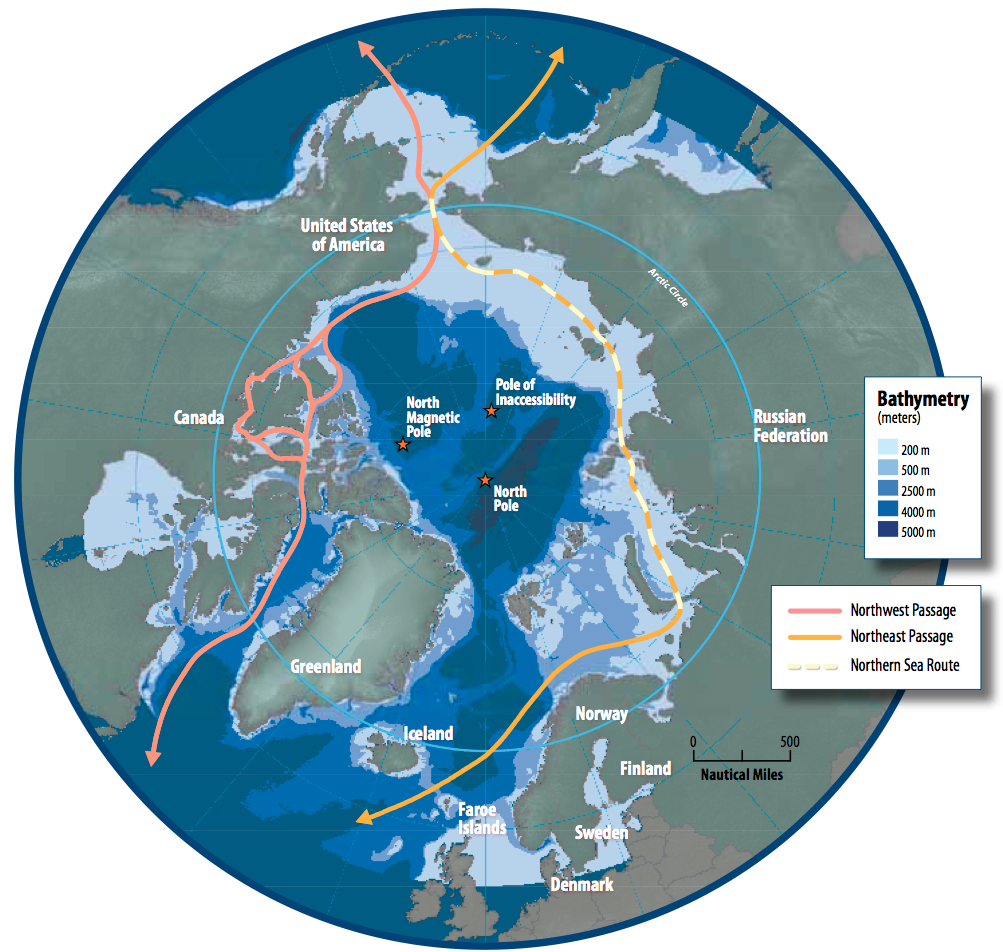The ‘High North’ as a highway to Europe- the growing need for Europeans to think vertically
Recent British Antarctic Survey research has shifted expectations of a completely sea-ice-free Arctic from 2050 to as early as 2035 (Maria-Vittoria et al, 2020). The halving of Europe-Asia shipping times this facilitates, while expected to provide varying economic and environmental benefits (Yevgeny Aksenov et al, 2017), also fundamentally alters Europe’s geopolitical security.
The three emerging Arctic shipping routes- Northwest, Northeast, and Northern Sea Routes. A trans-Arctic route going straight over the North Pole is also on the cards as the ice melts. Image courtesy of the Arctic Council, 2009
For instance, the easing conditions will allow China to conduct maritime operations on Europe’s doorstep, as Britain’s First Sea Lord recently warned (Harry Lye, 2020). A concern justified by China’s rapid naval expansion (Stephen Kuper,2019), and “Arctic Silk Road” interests (Zhang Chun, 2020). European states must begin to vertically re-orientate their security horizons and reconcile future South China Sea commitments with the risk that sabre rattling could soon be mutually reciprocated.

